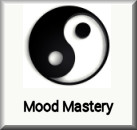 Being in the middle of a criticism contempt loop is so hard on couples. Gottman’s research shows that it is a direct cause of the break up of a relationship. The party who is the “criticizer” feels so justified and will often ask friends to affirm their thoughts and feelings. They have amassed a story that makes the other person unworthy to be alive and they may make a psychological diagnosis for their partner (my favorite). Their partner in return becomes defensive and then depending on their attachment style, avoids their partner, leaves the situation or moves in to the relationship intensely to ‘prove’ they are not that person. And the loop goes on.
Being in the middle of a criticism contempt loop is so hard on couples. Gottman’s research shows that it is a direct cause of the break up of a relationship. The party who is the “criticizer” feels so justified and will often ask friends to affirm their thoughts and feelings. They have amassed a story that makes the other person unworthy to be alive and they may make a psychological diagnosis for their partner (my favorite). Their partner in return becomes defensive and then depending on their attachment style, avoids their partner, leaves the situation or moves in to the relationship intensely to ‘prove’ they are not that person. And the loop goes on.
People have often chosen a partner that is somewhat like one of their parents and may be triggered by this criticism defensive loop. Even if their partner is not being harsh in their criticism, they may have been triggered by both the past and the present feelings in the interaction which causes greater wounding and a bigger response. If the criticizer has grown up with criticism, they will often not understand how often they are actually criticizing and how much they are responsible for crushing their partner’s spirit. So what are some ways to get out of this loop?
1. When your partner has spoken and you feel a big response to their words, assume that you have been triggered by something in your past as well as the present. Take responsibility for your big reaction. Do not blame or hold your partner responsible.
2. Take a time out for approximately 25 minutes in order to calm your physiology. It takes that long to calm emotional flooding. Make sure that you have let your partner know that you will return to your discussion after the time out. Do not think about the comments during that time.
3. Come back into the discussion with an attitude of curiosity. What is your partner trying to say to you? What is their message? Check it out. Let them correct you so that you can gain a much better understanding of what they are trying to say.
4. After understanding your partner well, let them know what you are thinking and feeling. Let them know of your vulnerability to criticism and thank them for helping you with a time out so that you could avoid defensiveness.
5. Have a discussion about trigger words for you both and areas of conversation that can lead to defensiveness. Do not avoid these areas but understand each other’s vulnerabilities and how you can speak more carefully. Download the pithy little rule book for satisfying marital conversations on the right side of this website in order to understand words that are more sensitive.
Do the above diligently, until you can successfully mange conversations that are sensitive. The rewards are that you will feel understood, that you will feel you can understand your partner and that your connection will feel strengthened.





